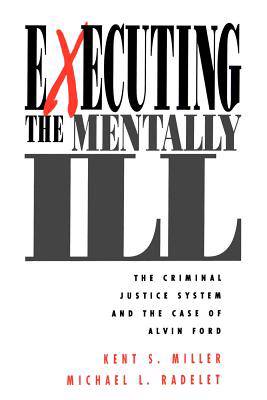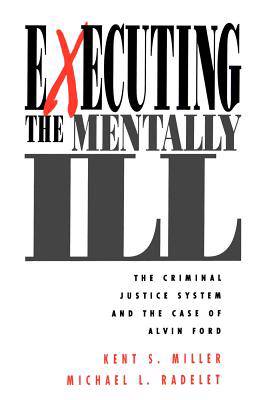
- Retrait gratuit dans votre magasin Club
- 7.000.000 titres dans notre catalogue
- Payer en toute sécurité
- Toujours un magasin près de chez vous
- Retrait gratuit dans votre magasin Club
- 7.000.000 titres dans notre catalogue
- Payer en toute sécurité
- Toujours un magasin près de chez vous
Executing the Mentally Ill
The Criminal Justice System and the Case of Alvin Ford
Kent Miller, Michael L Radelet
Livre broché | Anglais
160,45 €
+ 320 points
Description
Based on the case of Alvin Ford, an American death row inmate, this thought-provoking book focuses on the issues raised when the criminal justice system attempts to apply the death penalty to the mentally impaired.
Issues addressed include: the definition of mental illness for the purposes of exemption from execution; the evaluation of competence for execution by mental health professionals; the consequences of disagreements among health professionals about a defendant′s mental status; and the fate of prisoners who are exempted. Ford′s unique case leads the authors to examine more general issues such as the involvement of health professionals in modern capital sentencing, as well as the administration of the death penalty i
Spécifications
Parties prenantes
- Auteur(s) :
- Editeur:
Contenu
- Nombre de pages :
- 216
- Langue:
- Anglais
Caractéristiques
- EAN:
- 9780803951501
- Date de parution :
- 25-06-93
- Format:
- Livre broché
- Format numérique:
- Trade paperback (VS)
- Dimensions :
- 155 mm x 228 mm
- Poids :
- 331 g







